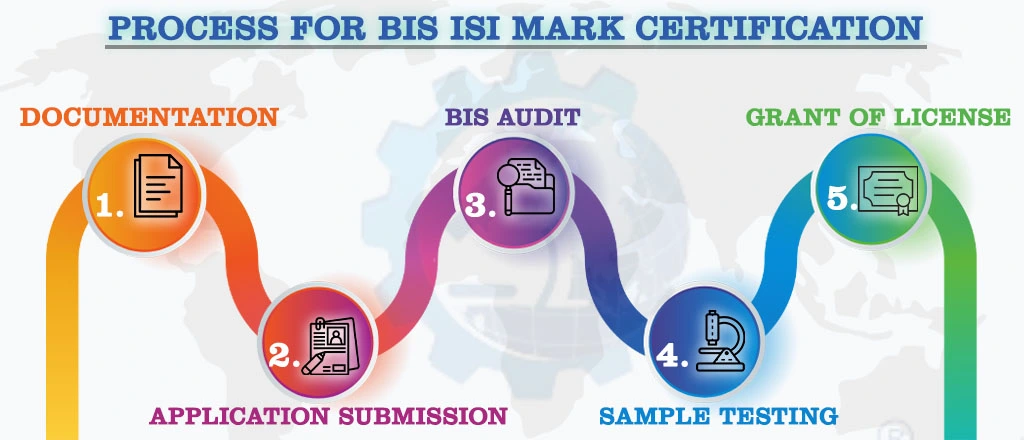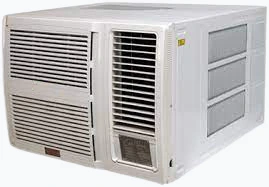BIS CERTIFICATION FOR UNITARY AIR CONDITIONERS
IS 1391 (PART 1):2017
In this competitive scenario, it isn't easy to survive in the market without a standard quality and certified product. BIS license may also be required to sell products in the Indian market.
To get BIS certification and produce a standard quality product, the manufacturer must ensure that their product must follow the specified Indian standard.
Let's take a closer look at IS 1391(Part 1): 2017 for room air conditioners (part 1 unitary air conditioners).
IS 1391 (Part 1): 2017 covers room air conditioners-unitary air conditioners. This standard specifies the design and performance requirements for unitary air conditioners. This standard also specifies the test conditions and procedures for determining various performance characteristics of unitary air conditioners that operate nonfrosting when cooling and dehumidifying at standard rating settings. This standard covers unitary air conditioners that can also function as heaters through the use of a heat pump or an electric heater.
Unitary air conditioners are classified based on their function and nominal cooling capacity.
- Classification based on Function
- Cooling and Dehumidification
- Cooling and Heating by Heat Pump
- Cooling and Heating by Electric Heater
- The nominal cooling capacity of unitary air conditioners should be classified as follows: 1500, 2250, 3000, 3750, 4500, 6000, 7500 and 9000 kcal/h.
The manufacturer must ensure that the product meets the standard's general, construction, and performance requirements. The air conditioner and its components must be built with enough strength and rigidity to withstand regular handling, transit, and operation conditions. There shall be no sharp edges or corners that could cause injury under normal usage conditions and all moving elements that could cause an accident shall be effectively guarded. Parts that need to be serviced regularly must be easily accessible.
Materials used in the construction of cabinets, front panels, and so on must comply with the equivalent Indian Standards wherever applicable unless modified by this standard. The material shall be free from defects that are likely to cause undue deterioration or failure.
tests
The following test shall be carried out for unitary air conditioners.
- Pressure test
- High Voltage Test
- Leakage Current Test
- Earth Resistance test
- Cooling Capacity test
- Power factor test
- Freeze up test
- Maximum Heating Performance Test
- Sound test
- Power consumption test
Labelling and marking shall be done in accordance with IS 1391 (Part 1): 2017. Conforming to the requirements of IS 1391( Part 1):2017, the product may be certified under the terms of the Bureau of Indian Standards Act, 2016 and the Rules and Regulations formulated thereunder, and the product may be marked with the Standard Mark (ISI Mark). The Manufacturer must obtain a BIS license from the Bureau of Indian Standards to use a standard mark (ISI Mark). The BIS grants a license based on a successful assessment of manufacturing infrastructure, quality control, testing capabilities, and production process.
Also Read
BIS Certification for Room Air Conditioners IS 1391 (Part 2): 2018BIS Certification for Ducted & Package Air Conditioners IS 8148:2018
BIS Certification for Finned Type Heat Exchanger IS 11329:2018

NOTE:
For Detailed Information about the Procedure for BIS ISI Certification
Visit :
ISI Mark Certification for Domestic ManufacturersISI Mark Certification for Foreign Manufacturers
Conclusion:
If a product falls under the scope of the BIS Conformity Assessment Scheme, All the manufacturers, importers, and foreign entities must obtain BIS ISI Certification. The Bureau may cancel the License if the product fails to meet certification requirements.
Aleph INDIA has been serving the industry as a single-window operator for all product regulatory compliance. We can assist importers or manufacturers in meeting all criteria for importing or selling a product in the Indian market.
International Audits & Participation
Testimonials
BIS REGISTRATION FOR ELECTRONIC & IT PRODUCT
In the era of globalization, world trade is growing rapidly and henceforth, Manufacturing and Import/Export businesses are also growing drastically...View More
BIS CERTIFICATE FOR FOREIGN MANUFACTURER
The Economy of India-the fastest developing economy on the globe with the capabilities that help it matches up with the biggest international...View More
PRODUCT CERTIFICATION SCHEME (ISI MARK) FOR DOMESTIC MANUFACTURERS
Anything a person buys from food to cars, clothes to electronics, branded to unnamed products there is always a question that wanders in one’s...View More
WIRELESS PLANNING AND COORDINATION (WPC)
WPC: Wireless means communication done from one point to another point without the wires and cables. Electromagnetic waves carry the ...View More
BUREAU OF ENERGY EFFICIENCY (BEE) CERTIFICATE
BEE CERTIFICATE: Energy is the future, and its conservation is the way of the bright future. Everyone claims the environment is important...View More
E-WASTE MANAGEMENT
E-waste is one of the world's fastest-growing trash streams. We currently manufacture almost 50 million tones of it each year...View More
Request a call back.
Would you like to speak to one of our Senior Technical advisers over the phone? Just submit your details and we’ll be in touch shortly. You can also email us if you would prefer.
BIS REGISTRATION FOR ELECTRONIC & IT PRODUCT
In the era of globalization, world trade is growing rapidly and henceforth, Manufacturing and Import/Export businesses are also growing drastically...View More
BIS CERTIFICATE FOR FOREIGN MANUFACTURER
The Economy of India-the fastest developing economy on the globe with the capabilities that help it matches up with the biggest international...View More
PRODUCT CERTIFICATION SCHEME (ISI MARK) FOR DOMESTIC MANUFACTURERS
Anything a person buys from food to cars, clothes to electronics, branded to unnamed products there is always a question that wanders in one’s...View More
WIRELESS PLANNING AND COORDINATION (WPC)
WPC: Wireless means communication done from one point to another point without the wires and cables. Electromagnetic waves carry the ...View More
BUREAU OF ENERGY EFFICIENCY (BEE) CERTIFICATE
BEE CERTIFICATE: Energy is the future, and its conservation is the way of the bright future. Everyone claims the environment is important...View More
E-WASTE MANAGEMENT
E-waste is one of the world's fastest-growing trash streams. We currently manufacture almost 50 million tones of it each year...View More
View All Services
Request a call back.
Would you like to speak to one of our Senior Technical advisers over the phone? Just submit your details and we’ll be in touch shortly. You can also email us if you would prefer.






























